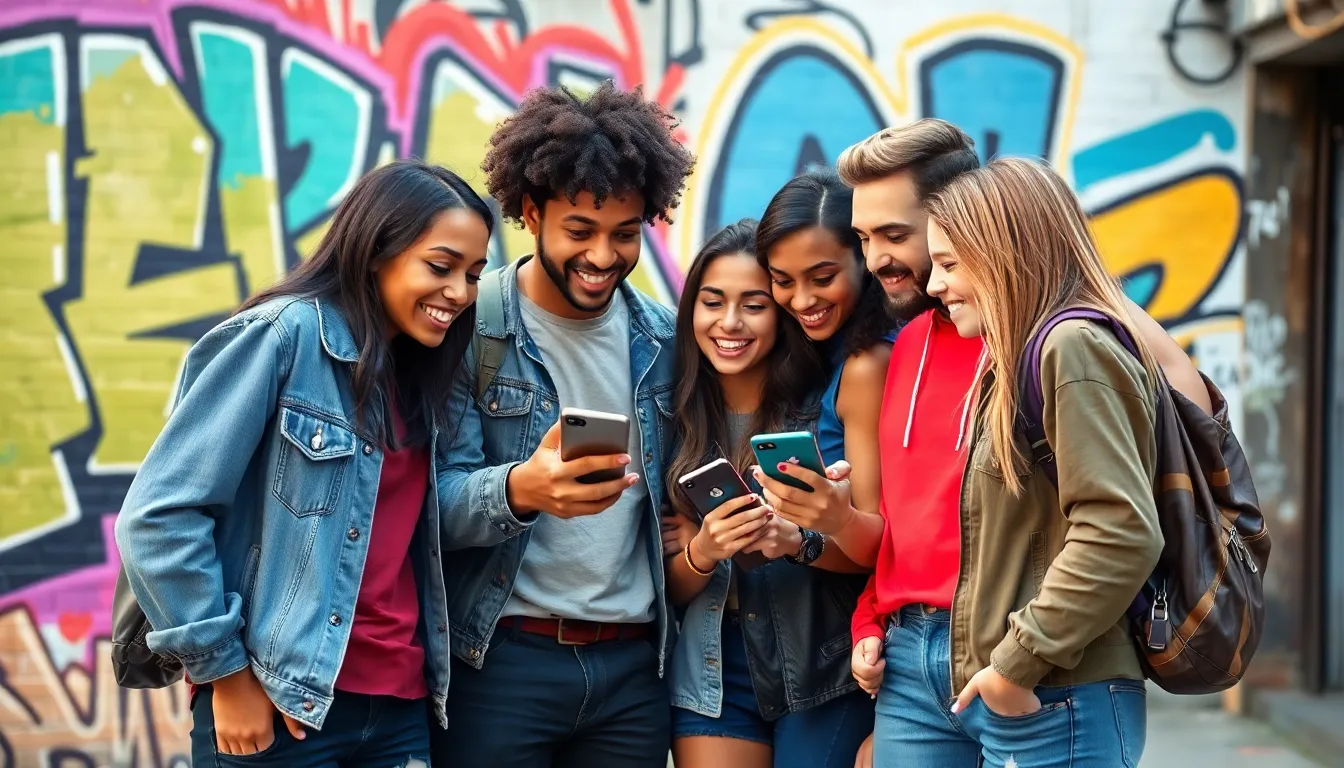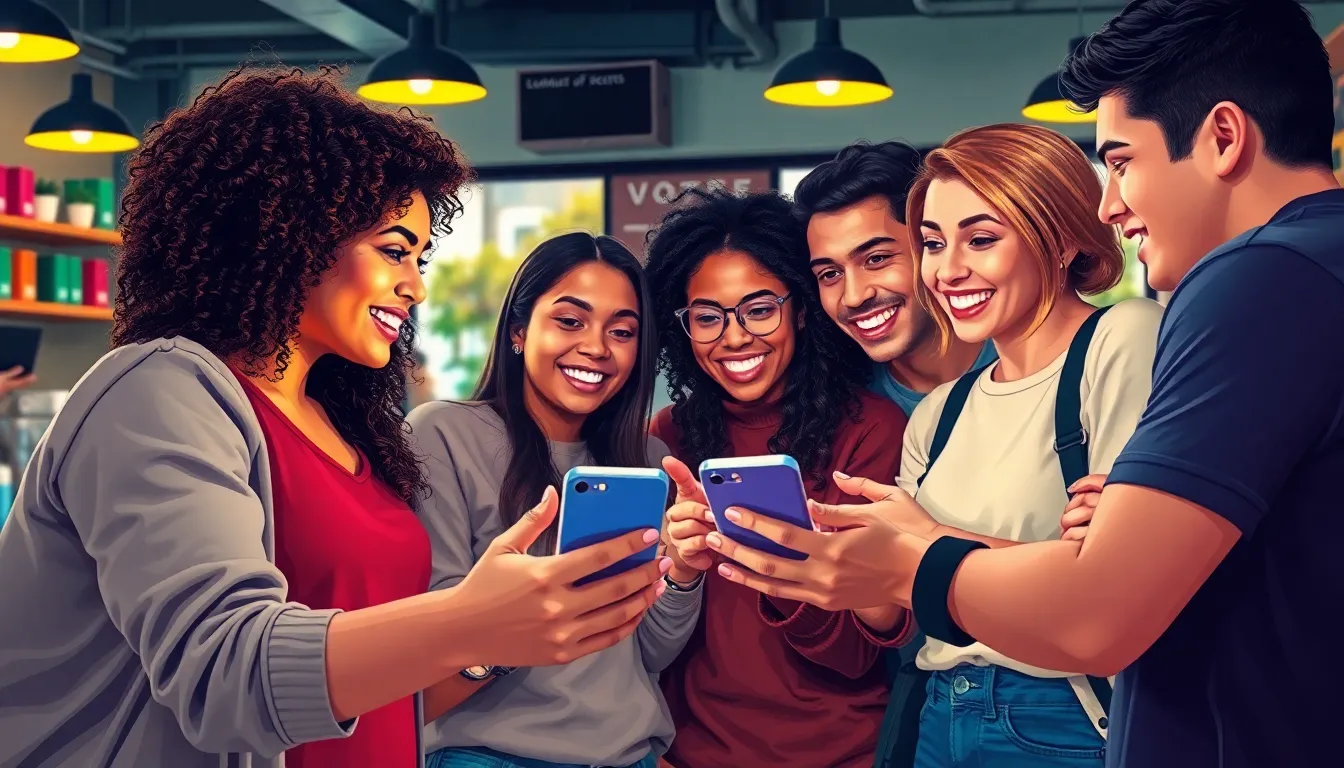
Pop Culture Crisis: How Rapid Changes Are Shaping Today’s Entertainment Landscape
In today’s fast-paced world, pop culture feels like a rollercoaster ride—thrilling, unpredictable, and occasionally leaving everyone a bit queasy. From viral TikTok dances to celebrity scandals that seem to erupt overnight, the landscape of entertainment is constantly shifting. But what happens when the very essence of pop culture spirals into a crisis?
Pop Culture Crisis
Pop culture crises emerge when significant events disrupt the prevailing entertainment landscape, significantly impacting public perception and interest. Various factors contribute to these crises, which can stem from controversies, scandals, or cultural shifts.
Definition and Context
A pop culture crisis refers to a significant event or series of events that challenges the norms and values within popular culture. These crises often occur rapidly, altering public attitudes and perceptions toward celebrities, trends, or movements. Influencers and media play a crucial role in shaping these events, amplifying their impact across social platforms. Understanding this concept requires recognizing how rapidly changing entertainment dynamics affect viewer engagement and sentiment.
Historical Overview
Historically, pop culture crises have shaped public discourse through incidents like the 1994 O.J. Simpson trial, which made headlines and altered perceptions of celebrity culture. The rise of the internet enabled quicker dissemination of information and reactions to controversies. Notable examples include the #MeToo movement, which significantly shifted expectations regarding accountability in the entertainment industry. Each crisis reflects society’s evolving values and highlights the role of media in influencing public discourse surrounding these events.
Key Factors Contributing to the Crisis

Pop culture crises arise from various influences that disrupt established norms and escalate public scrutiny.
Social Media Influence
Social media platforms amplify voices, rapidly spreading trends and controversies. Content shared on sites like TikTok and Twitter generates viral moments that can challenge celebrities or brands. Audiences react instantly, creating a feedback loop between influencers and their followers. Trending hashtags often rally individuals around specific causes, resulting in large-scale movements that affect public perception. Consequently, these platforms serve as both catalysts and magnifiers for crises, shaping narratives in real time.
Changing Audience Demographics
Demographic shifts considerably impact pop culture. Younger generations, particularly Millennials and Gen Z, bring different values and priorities to the table. Their preferences shape the content that garners attention, as they gravitate toward authenticity and representation. Diverse perspectives in entertainment lead to greater scrutiny of how narratives are portrayed. Changes in audience composition also demand that creators adapt to new expectations, making it essential to understand evolving cultural dynamics in response to these shifts.
Impact on Entertainment Industries
Pop culture crises create significant shifts across entertainment industries by challenging norms. Both film and television experience immediate effects during these events.
Film and Television
Film and television industries often face backlash during crises. Audience sentiment can change rapidly, leading to boycotts or diminished viewership. High-profile controversies, like allegations against prominent figures, directly impact box office performance. Streaming platforms may cancel or alter projects in response to public outcry. Producers need to navigate these turbulent waters carefully, ensuring that content aligns with evolving social standards. Viewers increasingly demand authenticity, prioritizing representation and meaningful narratives that reflect diverse experiences.
Music and Fashion
Music and fashion sectors also feel the ripple effects of pop culture crises. Artists may lose fan support due to controversial statements or behaviors. Record labels react by re-evaluating marketing strategies, often shifting focus to emerging artists who embody socially conscious values. Fashion brands, too, face scrutiny regarding their cultural representations. Responses include heightened efforts for diversity in campaigns and collections. Consumers show a preference for brands that demonstrate integrity and understanding of societal issues. These trends highlight the necessity for artists and designers to adapt to an evolving cultural landscape.
Responses to the Pop Culture Crisis
Pop culture crises prompt immediate reactions across various sectors of the entertainment industry. Companies make swift adjustments to their content strategies, often in response to audience demand for transparency and authenticity.
Industry Adaptations
Producers shift their creative approaches during crises. They prioritize inclusive storytelling and diverse representation, appealing to younger audiences’ values. Streaming platforms like Netflix and Hulu often lead the way, investing in projects that resonate with current cultural conversations. Brands also reassess their marketing strategies, opting to collaborate with influencers who promote positive narratives. Critical discussions in film and television address past missteps, fostering dialogues about accountability and growth. These adaptations not only address current issues but also prepare the industry for future challenges.
Fan Engagement and Activism
Fans play a pivotal role in shaping the response to pop culture crises. Social media enables rapid mobilization, allowing audiences to voice concerns and support movements like #TimesUp and #BlackLivesMatter. Creators must listen to fan feedback to avoid backlash and maintain relevance. Engagement often manifests through petitions, boycotts, and social campaigns, directly influencing industry practices. Artists increasingly leverage their platforms to advocate for social change, aligning their work with community values. Collaborations with activists strengthen bonds between creators and fans, ensuring mutual support in navigating complex cultural landscapes.
Future Outlook
Pop culture continues to shift rapidly, with crises reshaping its landscape. Future trends and innovations will significantly impact the entertainment industry.
Potential Trends
Increased focus on authenticity emerges as a leading trend within pop culture. Expect creators to prioritize genuine connections with audiences, especially among Millennials and Gen Z. Content that reflects diverse narratives gains traction, addressing evolving social values. Platforms like TikTok play a crucial role in shaping these narratives, with viral moments redefining engagement strategies. Sustainability in fashion is likely to influence consumer choices, encouraging brands to adopt ethical practices. Additionally, interactive experiences allow fans to engage actively, fostering community and enhancing loyalty.
Solutions and Innovations
Innovative approaches to storytelling respond directly to the demands of contemporary audiences. Streaming services are investing heavily in original programming that prioritizes inclusion and diverse perspectives. Data analytics tools provide content creators insights about viewer preferences, enabling tailored approaches. Collaborations between brands and social activists lead to campaigns that resonate authentically with target audiences. Creators leverage social media for transparent dialogues about issues, enhancing accountability. Expect technology to enhance audience interaction through immersive experiences, creating deeper connections between creators and fans.
Conclusion
Pop culture crises serve as pivotal moments that challenge the status quo and redefine societal values. As the landscape continues to evolve at a breakneck pace, the influence of social media and younger generations cannot be overstated. Creators and brands must remain agile and responsive to audience demands for authenticity and representation.
The future of pop culture hinges on its ability to adapt to these crises while fostering genuine connections with fans. By embracing diverse narratives and prioritizing transparency, the entertainment industry can navigate the complexities of modern cultural dynamics. Ultimately, the ongoing dialogue between creators and audiences will shape the next chapter of pop culture, ensuring it remains relevant and reflective of society’s collective values.